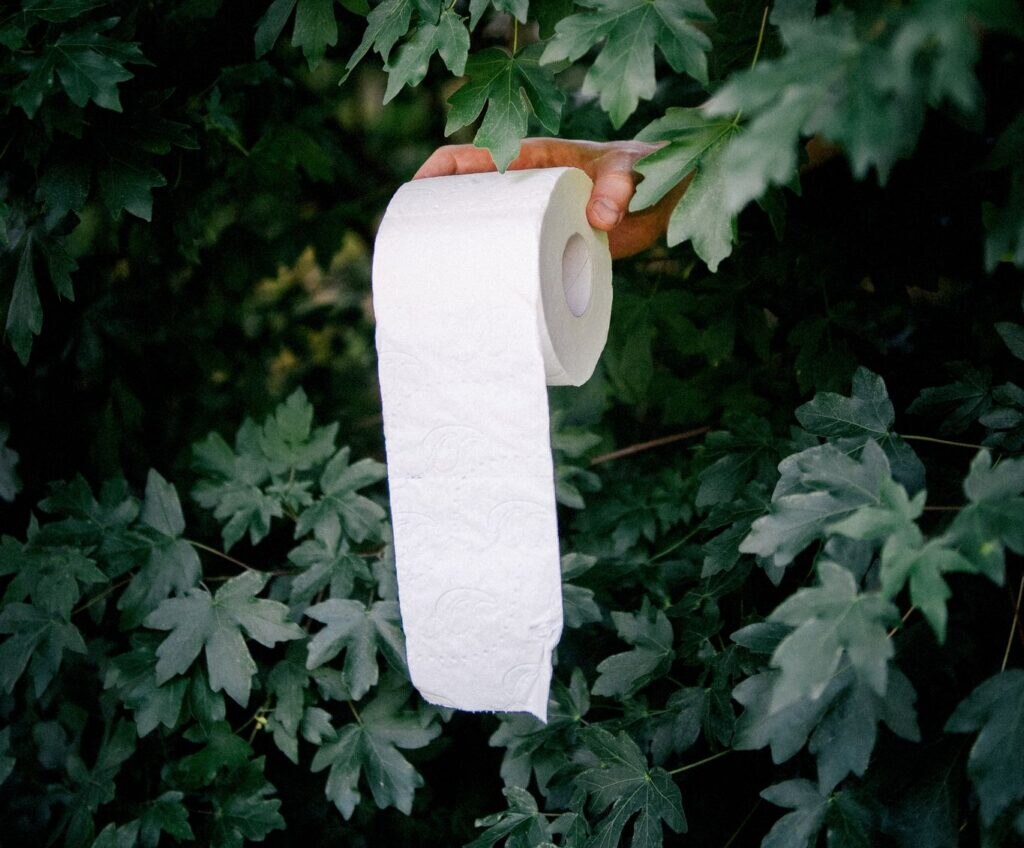When you’re out and about in nature, the closest bathroom is often further away than you’d like. So what to do if the intestine signals? And is it even allowed to do one’s “big business” in the forest? TRAVELBOOK answers the most important questions.
Suddenly he presses. And the next refuge or refreshment point is far away. After all, the bladder can often be emptied behind the next tree or rock, even if this is actually not permitted by law and is a punishable offence. Simply running your big business in the forest or other great outdoors can also be costly. In Germany, the same rules apply to defecation in the forest as to wild peeing in the city, the German Bar Association (DAV) explains on request. As a rule, this is an administrative offense which in some cases – i.e. when a “disturbance of public nuisance” is reported and one is consequently sentenced – can also be subject to higher penalties. But, according to the DAV: “In nature, of course, where there’s no plaintiff, there’s no judge.”
What if there are no toilets in sight far and wide?
Sometimes it doesn’t help, so the bowel simply needs to be emptied. However, big business is often harder to manage in the forest. With a little knowledge and preparation, however, it can work in nature as well, without harming it.
If you are planning longer hikes, you should take the need to enter the calculations. Toilet paper definitely belongs in the backpack. Handkerchiefs aren’t ideal because they’re particularly tear-resistant and decompose only slowly in nature. “If necessary, toilet paper can also be buried together with bequests,” says Ulrich Berkmann of the German Alpine Club. But it is ideal if you carry toilet paper with you in a small plastic bag. This also applies to excrement.

Plastic bag for big business in the forest
It’s best not to leave traces in your business, Berkmann clarifies. “The best thing is to always have a ‘cricket bag’ in your rucksack,” says the Alpine Club expert. Disposable travel toilets are a higher quality (but also more expensive) alternative to bags.
There are also commercially available reusable and portable dry toilets that you can open and sit down. Comfort-wise, that’s a good thing, because the long squat in the big store sometimes makes your leg muscles burn. On the way, however, there should always be opportunities to empty and clean the collection tank. Otherwise it will get fuller and fuller and the stench will increase.
A folding spade in the backpack
If you are likely to be out in the wilderness for a longer period of time and away from any toilets, a small collapsible spade or handy shovel should be in your backpack in addition to the toilet paper. It was already clear: if you can’t take your bequests with you, you should at least bury them. Not just to save others from seeing the unsightly pile.
The main thing is that feces may contain pathogens that can harm nature. Berkmann cautions that you should therefore avoid being near bodies of water in particular, because fungi, viruses, bacteria and other pathogens spread particularly far from there. “By the way, this also applies to animal feces, which is why we strongly advise against drinking unfiltered water from mountain streams, for example, if there is pasture above it.”

Tips around the hole to defecate
The following applies to the self-dug emergency hole: You are safe with a minimum distance of 50 meters from streams, rivers or lakes. Also, if possible, locations above the waterline should be chosen, otherwise faeces could get into the water due to flooding, write Ulrike Katrin Peters and Karsten-Thilo Raab in the book “How to shit in the woods”. In addition to all sorts of historical tidbits and tidbits, the handy book also contains tons of tips on defecation and urination outside the protected framework of the home toilet – a real insider tip for anyone who wants to learn more about the topic.
Concerning the hole dug or scratched, the book says: It is sufficient that it be about 6 to 8 inches deep, which is about the length of a (man’s) hand. It is precisely in these layers of earth that the bacteria that allow excrement to decompose more quickly are found. “The pace (…) can be further accelerated by mixing the remains with parts of the excavation.” A stick around is a suitable tool for this, which should also be buried. The dug hole is covered with stones and branches.
Two more suggestions from the Alpine Club: Dig much deeper into the snow, otherwise everything will come back to light next time the sun shines. And: if it is not possible to make a hole, you should cover the “relics” with large stones.
Big business in the forest: how do you wipe your butt?
There’s another practical question some people may have suddenly been confronted with on a Sunday stroll: How do you wipe your butt if you don’t have toilet paper or tissues with you?
The leaves of trees and shrubs can serve as an alternative. Better if they have already fallen. For environmental reasons, they should only be demolished in an emergency, Peters and Raab appeal in their book. According to the authors, the smooth bark that has fallen from the tree can also be used as a cleaning aid.
If you don’t want to use natural materials, the two recommend the “hand wash system”. To do this, drip some water from a water bottle onto your hand and use it as a kind of washcloth.
You gently wipe your butt with her as you squat down. “The buttocks should hang so low that water doesn’t flow down the leg,” the authors describe. Then rinse your hand thoroughly with more water from the bottle and wash it especially thoroughly with soap at the next opportunity. “Until then, the used hand shouldn’t touch anything.” Or you just make sure you get to the next toilet somehow.
With material from dpa




